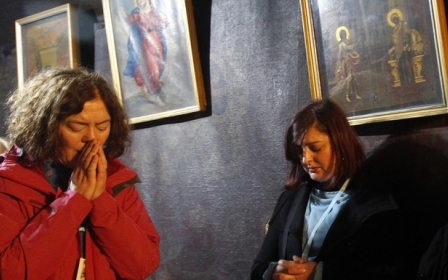Irish Senate backs law banning trade with Israeli settlements

The Irish Senate gave its support on Wednesday to legislation prohibiting the import or sale of goods and services produced in occupied territories around the world, including Israeli settlements considered illegal under international law.
The proposed law, which passed 25 to 20 to make it an offence to trade in such goods and services, was introduced by independent senator Frances Black and drew support from all Ireland's major political parties except the governing Fine Gael party.
Senior Palestinian Authority official Saeb Erekat hailed it as a "historic" vote and a "courageous gesture", which "sends a clear message to the international community and in particular to the rest of the European Union - to speak of a two-state solution is not enough without concrete measures".
It must now be considered by a parliamentary committee, before being eventually getting presented to MPs.
The campaign organisation Avaaz hailed the "unprecedented" vote and said: "Irish citizens, trade unions and civil society like Senator Black are determined to take advantage of this momentum for sanctions to become law."
Israel reacted angrily to the proposal calling it "populist, dangerous and extremist".
Ireland's Foreign Minister Simon Coveney, who did not back the bill, warned it risked "fanning flames" in the Middle East.
"I respect this house and its decision, but respectfully disagree," he said.
Proponents of the measure argued that Israel is profiting from its illegal settlements in the Palestinian territories and the stalled peace process shows no signs of yielding a resolution.
"The status quo has failed... that is why we are seeking a change," said Senator Colette Kelleher, who co-signed the bill.
"I'm asking you to lead Europe," she added, addressing her comments to Coveney.
But those opposed to the move said it could draw Ireland into trade disputes over contested territories in places like China, Cyprus and Crimea.
Middle East Eye propose une couverture et une analyse indépendantes et incomparables du Moyen-Orient, de l’Afrique du Nord et d’autres régions du monde. Pour en savoir plus sur la reprise de ce contenu et les frais qui s’appliquent, veuillez remplir ce formulaire [en anglais]. Pour en savoir plus sur MEE, cliquez ici [en anglais].




